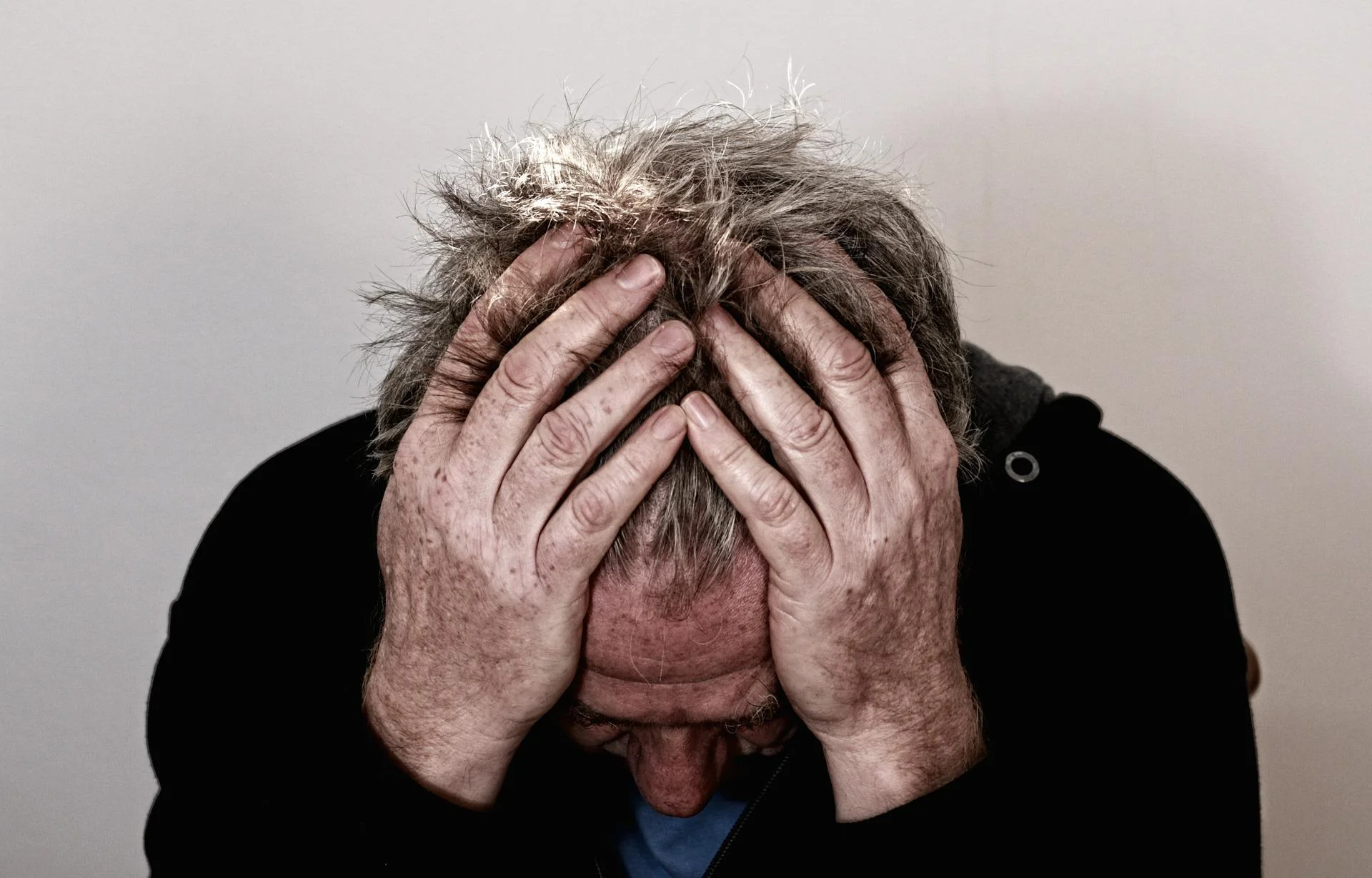Notice any of these signs of mental health decline in seniors? Here’s how you can help.

Our health often declines as we get older. But these changes aren’t just related to physical aspects like posture and movement. It also affects our mental health.
According to the CDC, 20% of seniors aged 55 or older experience mental health issues. Sadly, one in three of these seniors are undiagnosed and, therefore, do not receive treatment that could improve their quality of life. Knowing the signs of mental health decline can help you recognize poor senior mental health and take the next step toward improvement.
Look for the following signs of mental health decline in seniors:
Social Withdrawal
Seniors with declining mental health may exhibit symptoms of depression, such as social withdrawal. Mental barriers make it difficult to engage with others, so they may choose to withdraw altogether. What’s more, they might try to keep others at a distance so their changes in habits, such as appearance or appetite, go unnoticed.
Changes in Appearance
Lacking personal grooming or hygiene can indicate senior mental health decline. Your loved one could also forget or no longer feel the need to dress, shower, or brush their hair.
Decreased Appetite
A decline in appetite could lead to weight loss. Similar to changes in appearance, your senior loved one could forget to eat regularly or go to the grocery store. Or, it could be more akin to senior depression that reduces the desire to eat.
Trouble with Memory
Memory problems aren’t always a natural part of the aging process. As a result of senior mental health decline, your loved one might struggle to recall certain words to express their thoughts or misplace their belongings. This could be an early sign of dementia, so it’s best to speak with their doctor.
Changes in Sleep

Mental health issues can interrupt healthy sleep patterns. If your loved one is sleeping more or less than usual or doesn’t seem to have the same energy, it could be more than just aging.
Improving Mental Health in Seniors
Causes of mental health decline in seniors can range from mild (e.g., sadness) to severe (e.g., dementia). No matter the cause, early intervention can help improve their quality of life and potentially delay their mental health decline.
Many conditions, even non-curable ones like dementia, can improve with treatment. Some of these treatments involve the help of a doctor or therapist, while others can be done at home.
If your goal is improving mental health in seniors, the following can lead to noticeable improvements:
- Play mind games to stimulation thinking
- Encourage physical activity
- Help them stay connected with friends and family (especially if social distancing rules still apply in their area)
- Help them learn a new hobby
- Bring in a therapy animal
- Get involved at a senior center
- Volunteer at a non-profit
- Consider having them talk to a counselor
Different methods of help may work differently for each person and their unique conditions. Regardless, doing something is much more effective than doing nothing, and it ensures your senior loved one has the best chance of a normal, happy life.
For more healthy senior insights, head back to the Tailored Home Care blog.
Sources
https://www.cdc.gov/aging/pdf/mental_health.pdf
https://pavilionwp.com/7-Signs-That-Seniors-May-Be-Struggling-With-Mental-Health-Issues
https://www.medicalalert.com/10-signs-of-mental-health-conditions-in-older-adults/
https://www.aplaceformom.com/caregiver-resources/articles/mental-illness
https://www.salmonhealth.com/blog/senior-mental-health/


